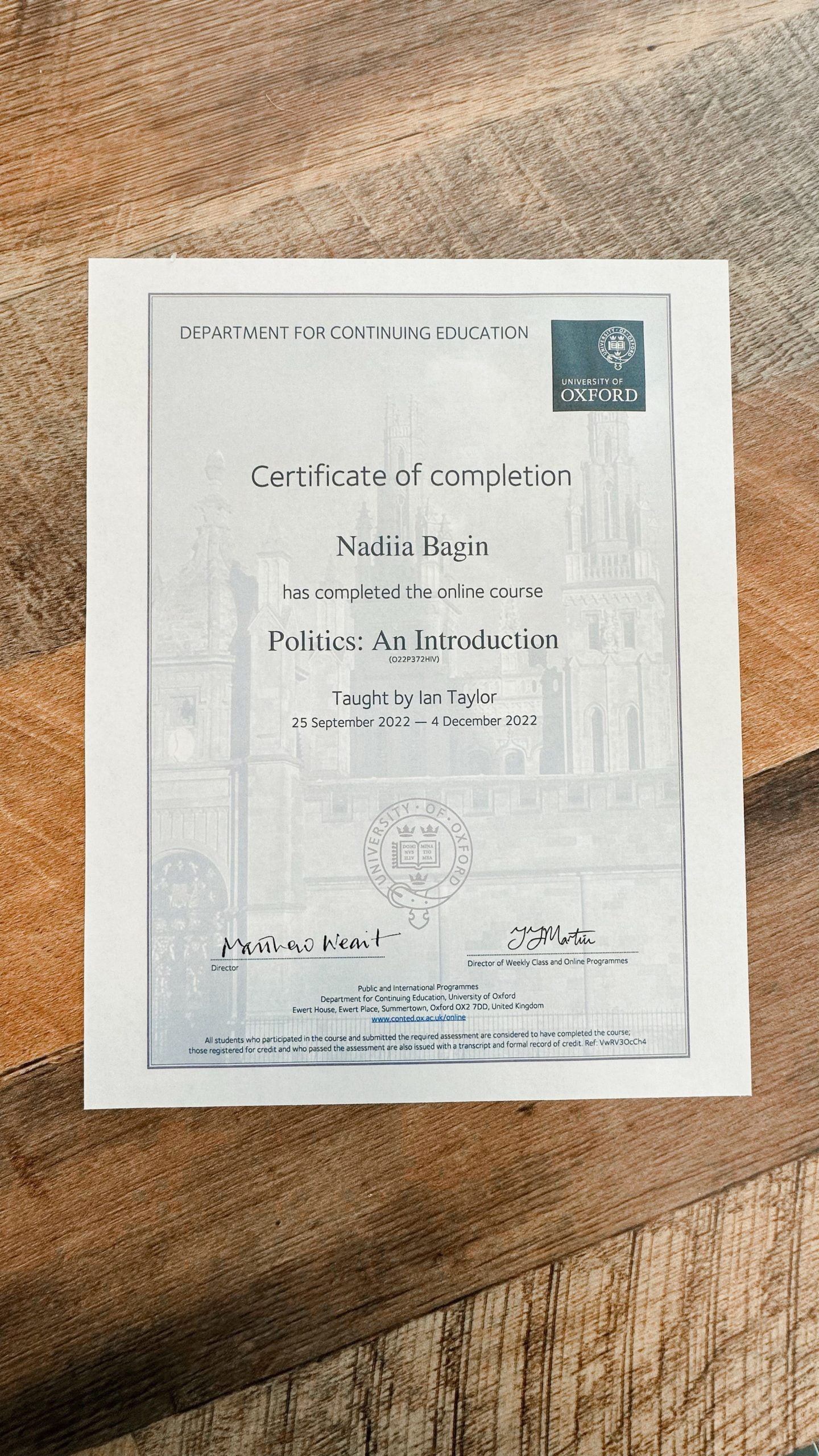Final Paper for Oxford’s Online Course Politics: Introduction
In the United States, Star Wars became one of the most popular movie series, which was filmed starting in 1977, with the last of IX main episodes coming out in 2019. There are also many additional movies, series, and cartoons filmed around the same topic. Star Wars merchandise for all those years made more than $40 billion. (Snedigar, 2021). One cannot help but wonder what makes this epic science fiction saga so popular. The USA is undoubtedly one of the most democratic states in the world, and Star Wars reflects what this country stands for, showing the striking difference between totalitarism and democracy on the big screen, engraining the longingness for freedom through generations and illustrating a famous American idiom: “Freedom Is Not Free.”
Some classic writers of the XIX century argued that democracy was a “major political development of their time” (Jackson and Tansey, 2004, p. 9), but democracy is much older than that. The term “democracy” first appeared in the 5th century BC in Greece. It means “rule of people,” contrasting to “aristocracy” – “rule of elite.” In Star Wars, democracy always wins, sooner or later. Sadly, in the real world, the democratic way of government disappeared after a century of its rule in Ancient Greece and lasted in the Roman Republic until 27 BC (Little, 2021), and until it was fully reborn in Western countries only in the XIX century, the majority of people lived under oppression and had no say in the way of politics.
Democracy highly values and fiercely defends freedom: freedom of speech, freedom to worship God, freedom from want, and freedom from fear. American President Franklin Roosevelt emphasized it in his address to Congress before the beginning of World War Two. He spoke against “the so-called new order of tyranny which the dictators seek to create with the crash of a bomb” and for “the moral order,” “the world order which we seek is the cooperation of free countries, working together in a friendly, civilized society” (ClassicNewsClips, 2010). In an ideal world, opponents should listen to such rational arguments, retreat immediately, and stop attempting to overturn the democratic way of government. In reality, as a sad irony, nothing less than “the crash of a bomb” was needed to stop the tyranny of fascism and nazism from spreading.
In the new Star Wars series Boba Fett which came out in 2021, the main character states the grounding principle of democratic leadership: ” Jabba ruled with fear. I intend to rule with respect” (Club). In Unit 1, we learned that politics is about power. In the chapter about Power, Jackson and Tansey argue that powerful politics can achieve intended results through deploying persuasion or manipulation, exercising authority or force, where authority is such kind of power that its legitimacy is accepted by those over whom that power is exercised (2004, p. 37). That is what Boba Fett is talking about and what democratic leaders try to achieve: winning the respect of ruled people who can, in turn, show that respect through democratic mechanisms such as free elections (Unit 8).
It is hard to earn other people’s respect without respecting them in the first place. Democracy leads the way in respecting other people through respecting their rights, both human and legal. All human beings have the same human rights given to us by our Creator and stated in the United Nations Universal Declaration of Human Rights (Jackson and Tansey, 2004, pp. 58-59). In democratic countries, legal rights are stated in some form of constitution, find their way into policies through the legislature, and can be defended through the judicial system (Unit 9). A three-part structure of democratic governments: executive, legislature, and judicial should help balance the power and protect it from abuse (Jackson and Tansey, 2004, pp. 165-166). Unfortunately, even in America legal rights of some people were not upheld less than a century ago. US President John F. Kennedy, dealing with a problem of diminishing rights of African Americans that caused riots, very well said: “the rights of every man are diminished when the rights of one man are threatened” (So Just, 2018).
Democracy also respects people’s privacy and firmly stands “against interference by the state in the private lives… and for freedom of expression.” (Jackson and Tansey, 2004, p. 94). Total control described by George Orwell in his fiction Nineteen Eighty-Four sounds surreal (Gutenberg.net.au, 2021), but similar control was established by the Soviets, implementing Marxism-Leninism on the fertile soil of rural Russia. In contrast to Marx’s theory, Lenin suggested that rural people were illiterate and needed “guidance” from an intellectual elite who knew better how to set them “free” from oppressing imperialism. Stalin then brought Lenin’s thoughts to yet another level, imposing massive surveillance and raging repressions of “wrong-minded” people (Unit 6; New World Encyclopedia, 2019). Such ways of ruling, at their core, showed total disrespect to the ruled people.
As Star Wars brilliantly shows, the “rule of people” is very messy: too many opinions need to be reconciled, too much negotiation, persuasion, and motivation need to take place. Much easier seem to rule by raw force, installing fear, or by coercion, lying about the real way of things. Democratic principles may be harder to implement, but because of consensus and participation, in the end, they do bring more stable results than forcing and manipulating. In democratic countries, people can vote in free elections to choose who will represent them in the government. For such elections to be legitimate and reflect people’s real will, there must be a working mechanism in place. The mere fact that a country has elections does not imply that those elections are happening in a democratic way (Unit 8).
After the officials are elected, they have to get to the real work of creating policies that can improve people’s lives, which is a challenge in and of itself. This is where the main question of politics: “who gets what, when, how and why and where” (Leftwitch, 2004), is being answered practically. In democratic countries, those processes tend to be more transparent and refined. Bureaucracies served those purposes for quite some time, giving place now to the “hollowing of the state” tendencies. Still, as Rhodes argues, there is a case for bureaucracies to come back because of the ambiguity that was created by many parties involved in the service delivery (1994, pp. 146-151).
Democracy can be rightfully called “a major political development,” but despite or even exactly because of that, it is under a constant threat from authoritarian regimes. Today, the battle ground is in Ukraine. What happens there can decide the fate of democracy for many centuries into the future. At the very beginning of its existence, democracy was rather short lived in Ancient Greece and Rome, followed by times and times longer rule of autocratic systems. As of today, the modern world has enjoyed almost two centuries of democracy triumph in the countries with major economic progress, and all people, living in free democratic countries, are hoping for the best. Yet, the ground is shaking.
The main threat to democratic ways may be hidden in globalization. Establishing democracy in each particular country was not an easy task: some needed revolutionary movements, while others changed gradually over a long period of time (Unit 3). For an international society, establishing a democratic “world order” is even harder. The attempt to create an international organization to help peaceful collaboration after WWI did not bring the desired results. On the contrary, WWII started shortly (United Nations). Then, the raw power finished WWII and initiated the Cold War (Pruitt, 2019). Democratic countries are more peaceful when dealing with each other because they value negotiations and pluralism, where all the parties are expected to be rational and reasonable (Unit 1). An ideal scenario would be if all the countries choose to adopt democratic ways, but this is not the case. On the other hand, freedom cannot be forced, or it is not freedom anymore. With the current situation and modern weaponry, an attempt to end the war with raw power seems way too dangerous.
When Jesus’s disciples asked Him about the end of times, He said: “You will hear of wars and rumours of wars… Nation will rise against nation, and kingdom against kingdom. There will be famines and earthquakes in various places. All these are the beginning of birth-pains… Because of the increase of wickedness, the love of most will grow cold, but the one who stands firm to the end will be saved. And this gospel of the kingdom will be preached in the whole world as a testimony to all nations, and then the end will come” (Matthew 24: 3, 6a, 7, 8, 12-14). We have the first-raw tickets to this epic, and this time unfortunately, not at all fictional saga that we wish we never have seen, and very soon, we will find out whether democracy will stand its test one more time or… let us hope it will.
Reference List
ClassicNewsClips (2010). Franklin D. Roosevelt ‘Four Freedoms’ Speech – January 6, 1941. YouTube. Available at: https://www.youtube.com/watch?v=QnrZUHcpoNA. (Accessed: 4 December 2022).
Club, B.F.F. (n.d.). ‘Jabba ruled with fear. I intend to rule with respect.’ – Boba Fett Quotes. [online] Boba Fett Fan Club. Available at: https://www.bobafettfanclub.com/fettpedia/quotes/199/. (Accessed: 4 December 2022).
Gutenberg.net.au. (2021). [online] Available at: https://gutenberg.net.au/ebooks01/0100021.txt. (Accessed: 4 December 2022)
Jackson. N. and Tansey S. (2004). Politics: The Basics.
Leftwitch A. (2004). What Is Politics.
Little, B. (2021). Why Greece Is Considered the Birthplace of Democracy. [online] HISTORY. Available at: https://www.history.com/news/ancient-greece-democracy-origins. (Accessed: 4 December 2022).
Matthew 24 | NIVUK Bible | YouVersion. (n.d.). [online] www.bible.com. Available at: https://www.bible.com/bible/113/MAT.24.NIVUK (Accessed: 4 December 2022).
New World Encyclopedia (2019). Marxism-Leninism – New World Encyclopedia. [online] Newworldencyclopedia.org. Available at: https://www.newworldencyclopedia.org/entry/Marxism-Leninism. (Accessed: 4 December 2022).
Pruitt, S. (2019). The Hiroshima Bombing Didn’t Just End WWII—It Kick-Started the Cold War. [online] HISTORY. Available at: https://www.history.com/news/hiroshima-nagasaki-bombing-wwii-cold-war. . (Accessed: 4 December 2022).
Rhodes R. A. W. (1994). The hollowing out of the state: the changing nature of the public service in Britain. Vol.65 (2) p.138-151. Political Quarterly.
Snedigar, J. (2021). The Retail Brilliance of the Star Wars Franchise. [online] OnQ. Available at: https://www.onqsolutions.com/star-wars-retail-brilliance/. (Accessed: 4 December 2022).
So Just (2018). Civil Rights Message by John F. Kennedy June 11, 1963. Available at: http://www.sojust.net/speeches/jfk_civil_rights.html. (Accessed: 4 December 2022).
United Nations (n.d.). Predecessor: The League of Nations. [online] United Nations. Available at: https://www.un.org/en/about-us/history-of-the-un/predecessor. (Accessed: 4 November 2022).






